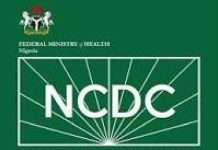
The Association of Industrial Pharmacists of Nigeria (NAIP) on Wednesday brought together the Chief Executive Officers of pharmaceutical companies in the industrial sector to examine the economic outlook of the year 2023, so as to prepare them ahead of imminent challenges.
The theme of the gathering, which is the annual NAIP 2023 Economic Outlook and CEO Forum was “Economic outlook for 2023: Trends, challenges and opportunity for the pharma sector”. The association, through its resource persons at the forum examined and identified the economic trends, challenges and opportunities in the pharmaceutical sector for year 2023.
The President, Pharmaceutical Society of Nigeria (PSN), Prof. Cyril Usifoh described the event as a fantastic one. “It is the coming together of people of like minds and people spoke well and a lot of lessons have been learnt. I personally learnt a lot of things and I am happy because if we are able to implement the discussion, it will help us to plan towards the future.
The Chairman of the association, Pharm. Ken Onuegbu, said the association is conscious of certain challenges that may come up in the year 2023, hence it decided to take a proactive measure to sensitise and equip the members ahead of the challenges.

“2023 is likely to be though, especially with the expected removal of fuel subsidy which is going to come with its attendant consequences, this is why we are preparing our members to rise up, tighten their belt and prepare for the turbulent ahead”, Pharm. Onuegbu said.
While speaking at the event held at Providence Hotel, Lagos; the keynote speaker, who is the Group Managing Director and CEO, Meristem Group, a financial services provider, Mr Oluwole Abegunde, said there will be some key economic challenges in the year 2023, noting that some of the challenges will have huge adverse effects on pharma businesses. He therefore advised the industrial pharmacists to prepare ahead for the imminent challenges.
According to him, there is inflation in many countries across the world and since Nigeria import virtually everything, ranging from finished goods to raw materials for manufacturing, especially in the pharmaceutical manufacturing, importers are importing inflation. This according to him will have effect on businesses in Nigeria.
“There is inflation in every country of the world where we buy raw materials and products, so we are importing their inflation, this will have impact on pharma products, the cost price of products will go up, unfortunately, all the cost will be too much to be passed across to consumers, so it will affect profit margin, that means the company owners should prepare to compromise part of their profit margin”, Abegunde said.
Also speaking on the trend, challenges and opportunities for the pharma sector in 2023, Mr Damilare Ojo, also an expert from Meristerm explained that there is inflation in Nigeria already and it is already affecting the pharma sector, pointing that there is no sign that inflation will abate in 2023. He also pointed out that the low government budget for the health sector is also not helping matter.
According to Ojo, there will be many challenges in 2023. He said the imminent removal of fuel subsidy will trigger unusual inflation which will not just affect pharmaceutical companies but also affect their products. Other index that will likely pose challenges, according to Ojo, include lack of foreign exchange, low government spending in the industry, as well as lack of access to funding. He also noted that the rate of forex will likely increase but with likely less volatility. He added that government borrowing may also increase. All these he said will pose unusual challenges before pharmaceutical companies’ operation in 2023.
He however said there are lots of opportunities that company owners and the industry as a whole can explore and one of the opportunities, according to him, is the African Continental Free Trade Area (AfCFTA) agreement.
“AfCFTA will provide large market for pharmaceutical products, and that is not all, the market will also provide large population”, Ojo said.
He added that there are a lot of opportunities in the coming new Lagos City in the Lekki axis, where there will be new airport, refinery as well as tree trade zone. He charge pharma companies to take advantage of the opportunity and one of the ways to take advantage of the new city is by collaborating, to share cost.
Ojo added that the coming new regime in electricity regulation, which allows states, companies and individuals to generate electricity, is also an opportunity that pharma company owners should explore. He said “Pharma companies and the sector as a whole can push and make moves to generate electricity to power their factory. This will reduce the cost diesel which is a big burden to manufacturing plants”.
Meanwhile, stakeholders have said one of the ways through which pharma companies in the industrial sector can navigate the imminent challenges in the year 2023 and beyond is by embracing contract manufacturing.
While speaking on the sub-theme of the NAIP 2023 economic outlook and CEOs forum, “contract manufacturing in Nigeria: Collaboration for increased capacity utilization and drug security”, the Chairman of Fidson Healthcare PLC, Dr Fidelis Ayebae, noted that contract manufacturing is the way for pharmaceutical company to get to the top.
Although the lead discussants, during the panel discussion, Pharm. Ade Popoola, highlighted some of the challenges associated with contract manufacturing in the country, Ayebae urged everyone going into contract manufacturing to find out the pedigree of the factory owner before signing any contract.
The Chairman, board of trustee of NAIP, Prof. Lere Baale, Nstressed that the most important thing that the NigeriaN=n pharmaceutical industry needs now is collaboration. He charged those manufacturing abroad to start patronising local manufacturers, saying that is the way the sector can grow.
In her presentation, titled ‘collaboration and engagement of labouratory, investigative and complimentary services as a model for growth’, the Managing Director/CEO, Katchey Labouratory, Mrs Kate Isa, urged stakeholders in the industry to stop waiting for government before they start taking action. She also charged all stakeholders to start going into collaboration, saying such move will take the industry to a greater height.
On her part, the Executive Director, Emzor Pharmaceutical Industry Limited, Pharm Uzoma Ezeoke emphasised the importance of contract manufacturing but advised that those going into it should choose their partners wisely.










